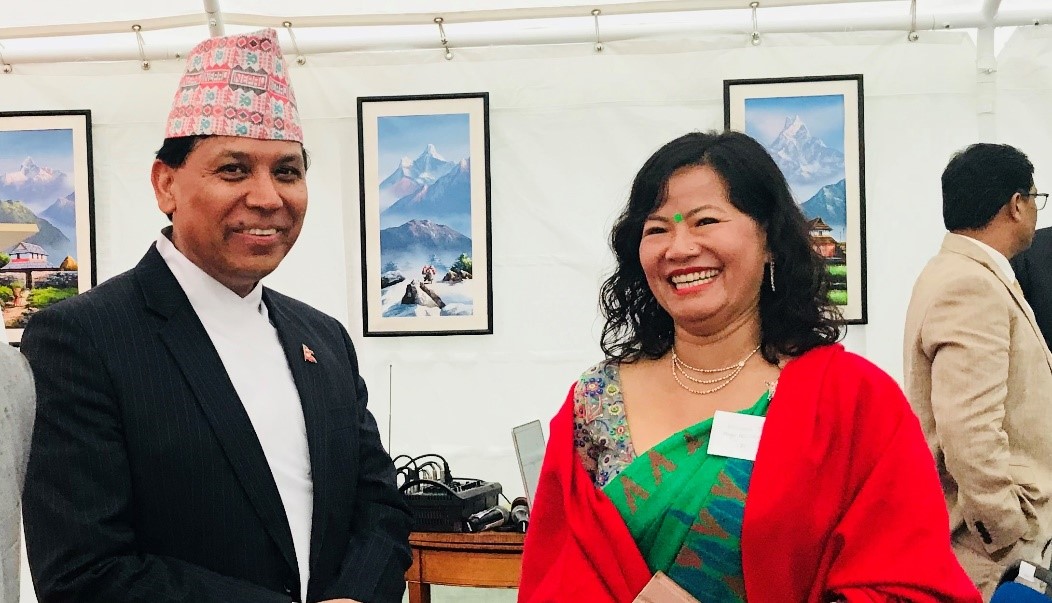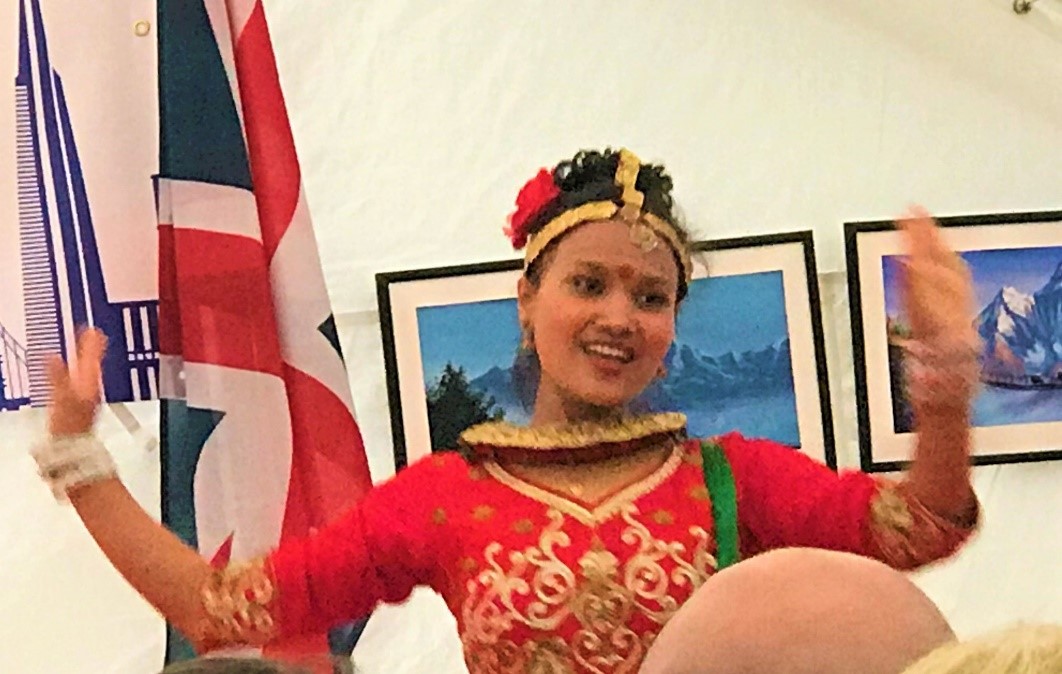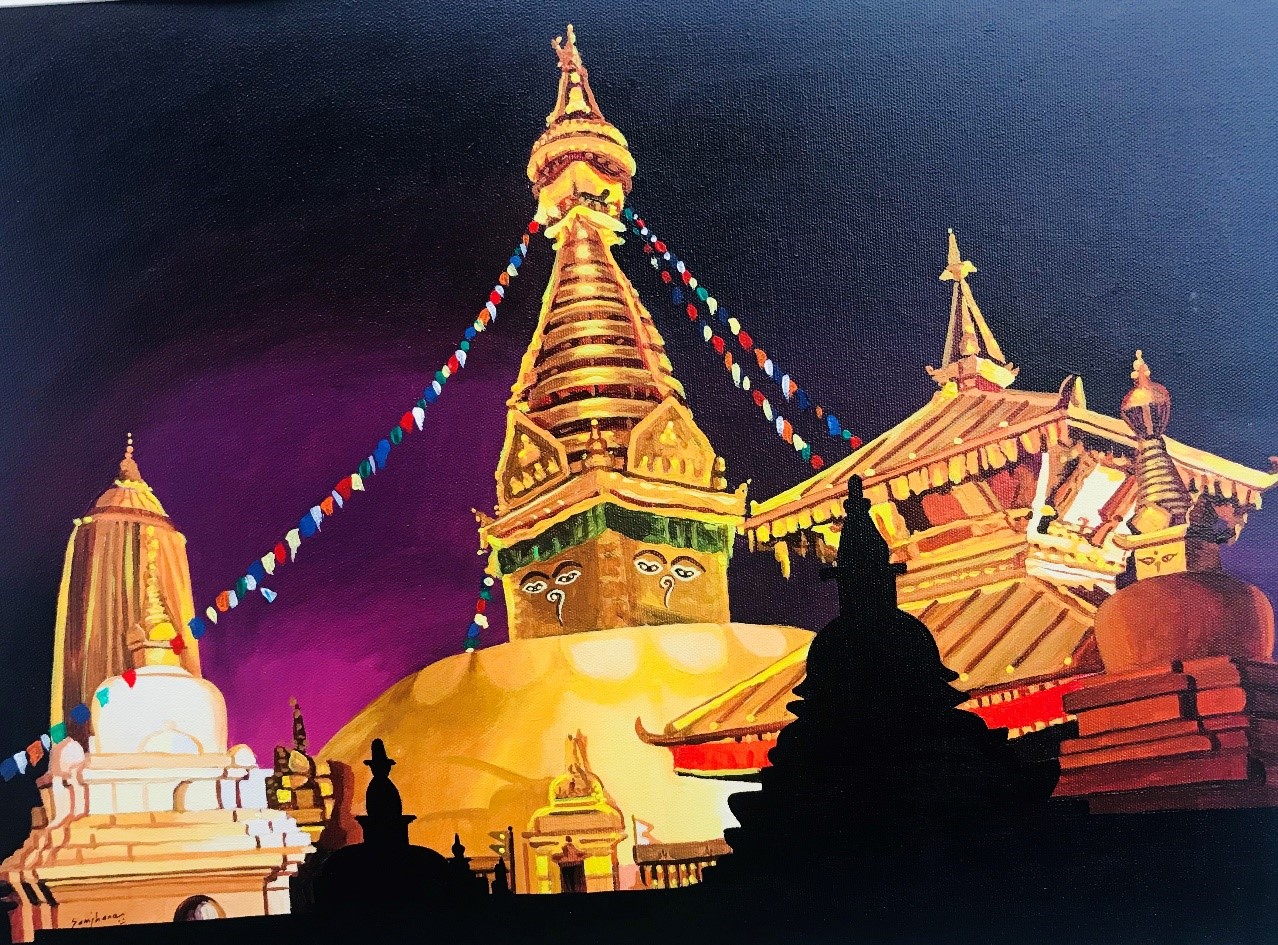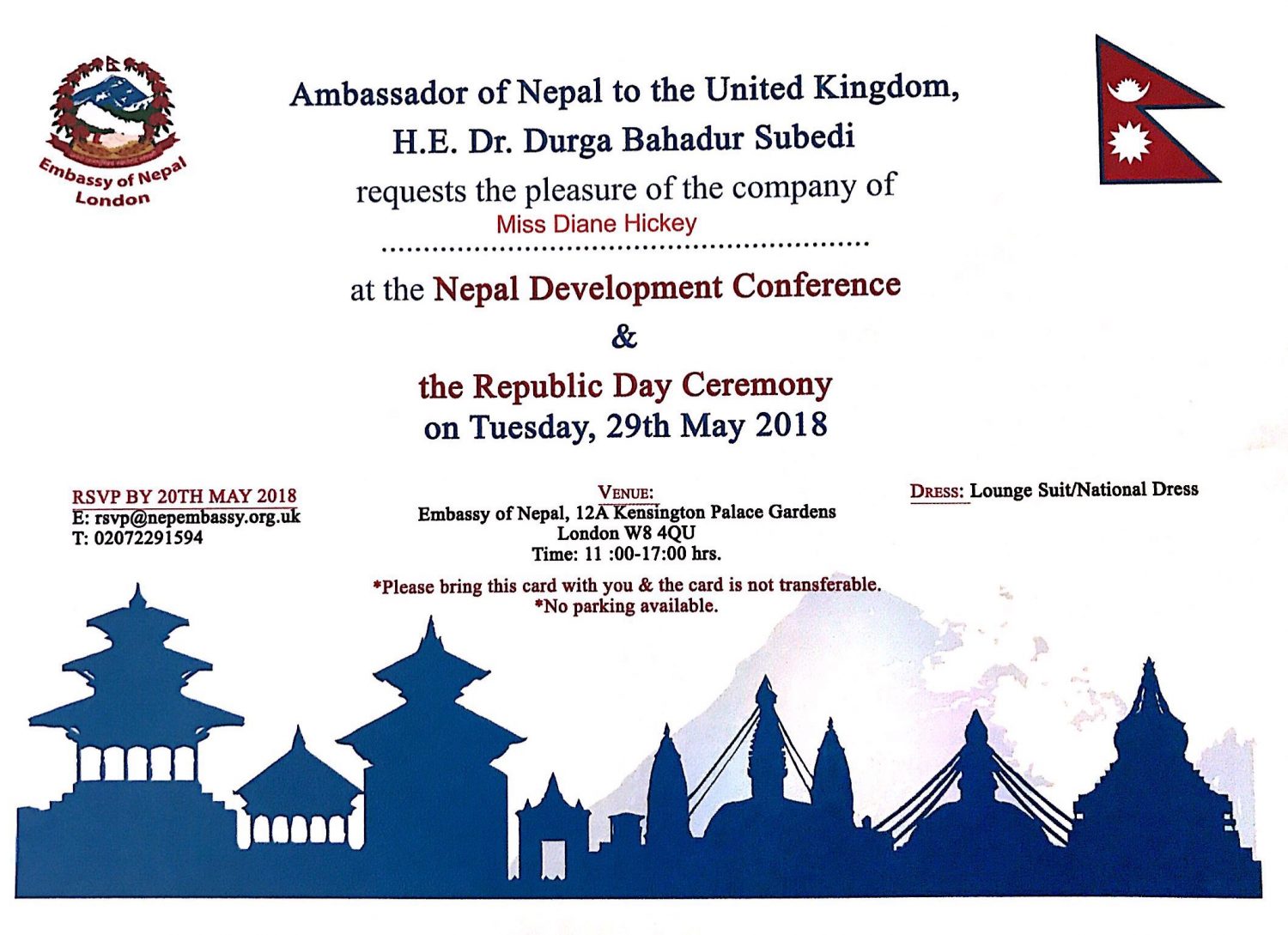The purpose of the Conference was to celebrate the anniversary of Republic Day on 29 May and to discuss certain the areas of political, social and economic development in Nepal. There were speakers from charities, academia, medicine and the Department for International Development.
Two JMB Educational Fund Trustees, Di Hickey and June Corpuz attended the Republic Day Ceremony and the Nepal Development Conference on 29 May 2018 at the Nepal Embassy in Kensington Palace Gardens.
 HE DR Durga Bahadur Subedi Ambassador of Nepal to the UK and Guest
HE DR Durga Bahadur Subedi Ambassador of Nepal to the UK and Guest
Distinguish guests and attendees
The event was well attended by about 300 guests many of who have had a long relationship with and an in-depth knowledge of Nepal through the British government or through the many charitable trusts and foundations that operate in Nepal. There were many very distinguished guests and speakers such as Lord and Lady Swifen ( a British parliamentarian and a heredity peer), the Rt Hon Lord Richard George Rogers, the Rt Hon Sir Tony Baldry (a British Conservative Party politician and former MP of Banbury), Rt Hon Sir Andrew Parmely (former Lord Mayor of London), Prof Dr Surya Prasad Subedi (the first Nepali Professor of Law from Oxford who has been recently appointed to the Queen’s Council) and, HE Dr Durga Bahadur Subedi (the Nepalese Ambassador to the UK).
Political Progress and future development potential
The event was to celebrate the tenth anniversary of the Nepal Republic recognising the political turbulence of the past and the enormous progress made in Nepal from a unitarian monarchy to a federalized system of government with a constitution promulgated in September 2015 which is rights-based, democratic and inclusive of all races and religions. There is a great amount of optimism that Nepal has now a strong and stable multi-party federal government elected democratically through free and fair election with a two-thirds majority. State and local governments election have concluded as recently as December 2017. The National Anthem of Nepal reflect the diversity and the unity of Nepal with the words” We are hundreds of flowers, the one garland.”
The current political stability and the federalisation in Nepal, has paved the way for significant social and economic progress in which foreign investment is very much welcomed and this is facilitated by the warm, cordial and exemplary relationship which Nepal has with the UK for the past 200 years since the Treaty of Sugauli 1816. This treaty gave certain territorial concessions controlled by Nepal to British India, established a British representative in Kathmandu and allowed Britain to recruit Gurkhas for military service. The Nepalese British relationship was described by Dr Surya Prasad Subedi as a multi-facet friendship not just with the Gurkhas but a harmonious people-to-people relationship and not just a trade/financial relationship. This resonated with many of the attendees from the various charities and agencies including Di and June.
Speakers at the Conference
The Conference then opened to a number of speakers on the theme of the deep relationship with the UK and co-operation and development initiatives in various areas of discipline. The speakers were from the British Nepal Society (Chairman Roger Potter who is retiring and Mr Andrew Sparks the Chairman designate), the British and Nepal NGO network (BRANNGO), the Foreign and Commonwealth office, the Royal Botanical Gardens in Edinburgh, the School of Oriental and African Studies, a women empowerment group, a Paediatric Neurosurgeon, the Gurkha Welfare Trust and the Department for International Development.
The British and Nepal NGO network (BRANNGO)
BRANNGO was formally launched at the Conference by the unveiling of their logo. BRANNGO is an informal network of individuals and UK Charities with a shared commitment to working in partnership in Nepal. They do this through:
• Exchanging information;
• Facilitating dialogue and
• Encouraging collaboration.
These activities which takes place in the form of a bi-monthly paper in which a volunteer writer shares insight on particular issues affecting NGOs in Nepal. Through these activities they believe they can promote best practise, avoid duplication and ultimately better serve, work with and learn from the people of Nepal.

 Cultural Dances at the Conference
Cultural Dances at the Conference
 A painting from an Art Exhibition by Nepali Artist Mrs Samjhana Rajbhandari. The painting is a gift from the artist to the Embassy.
A painting from an Art Exhibition by Nepali Artist Mrs Samjhana Rajbhandari. The painting is a gift from the artist to the Embassy.

